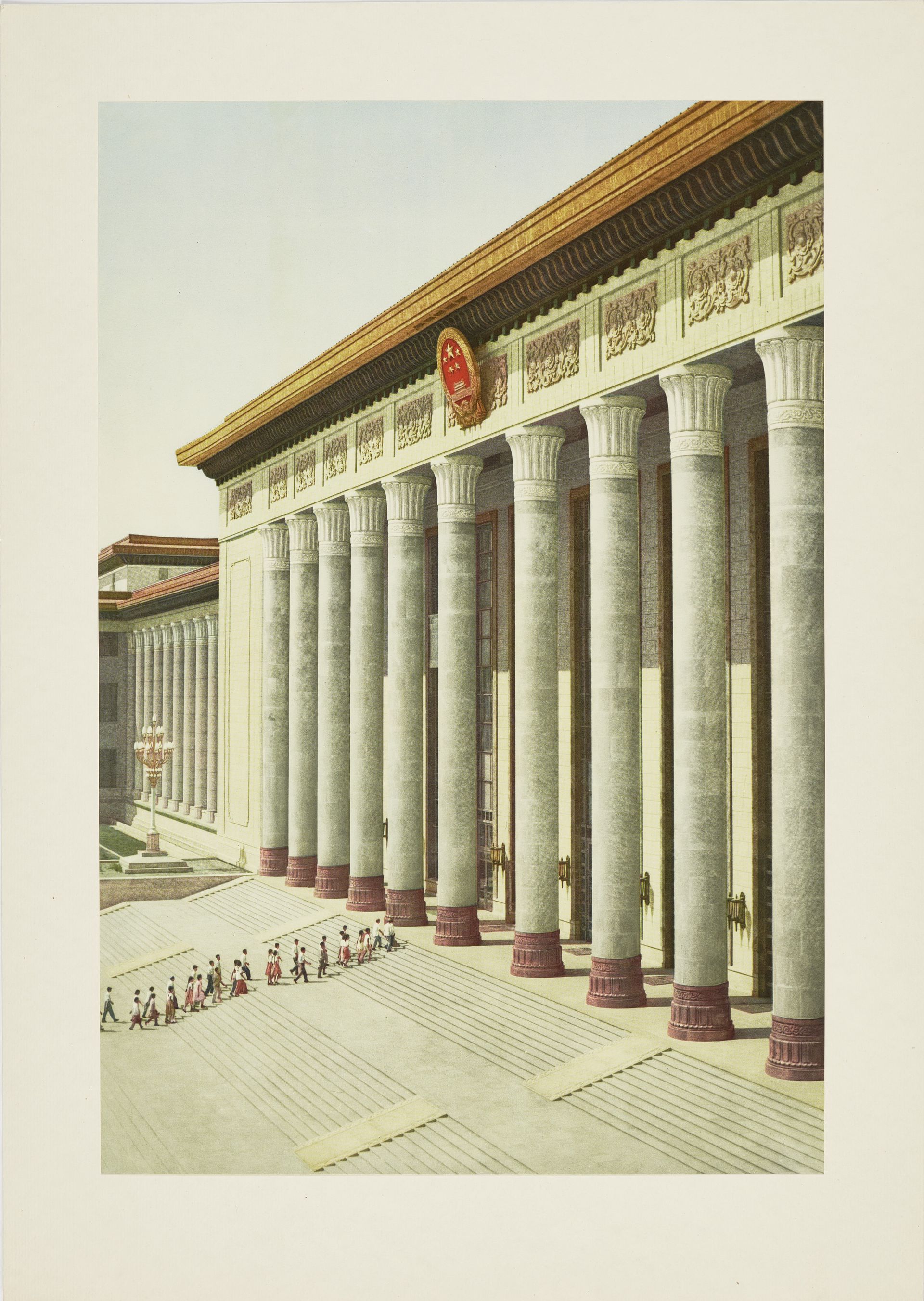Between the founding of the People’s Republic of China in 1949 and the implementation of Reform and Opening policies in 1979, architecture was a key part of the country’s vision for socialist modernity. While this political focus shaped a variety of formal and spatial strategies in the built environment, driven by shifting policies throughout these three decades, modern Chinese architecture has largely been perceived as stunted and not progressive. Many misconceptions of this history persist even today: that nationalization and collectivism denied architects creative freedom, that projects were more focused on industrial productivity than design quality, and that the state’s emphasis on a “national style” limited the diversity of modern architecture.
The exhibition Function, Economy, and (When Possible) Beauty: Architecture of China 1949–1979, produced and curated in collaboration with M+ Museum in Hong Kong, reconsiders these assumptions. Titled after one of the key slogans that guided architecture in the first three decades of the PRC, the exhibition takes the multimedia documentation of architectural production under the socialist Chinese regime as a point of departure, illuminating specific social and cultural microhistories that are not evident in purely textual historical sources. These social biographies of projects—characterized by material and technical inventiveness, continuities and discontinuities with social, economic, and political inclinations, and direct and indirect influences from within and beyond the Eastern bloc—challenge prevailing assessments of design and architectural practice in Mao’s China as monolithic, hermetic, and autocratic.
Examining more nuanced histories and narratives behind projects from the undocumented perspectives of design institutes, architects, and inhabitants, the exhibition extends the CCA’s research into new readings of modern architecture and practice across different geographies, cultures and sociopolitical contexts.
The exhibition is organized by the CCA in collaboration with M+, Hong Kong.
Curator: Shirley Surya, M+, Hong Kong
Research: Li Hua, Southeast University, Nanjing
Curatorial team: Megan Marin, Charlie-Anne Côté, Victoria Addona, CCA, and Naomi Altman, M+, Hong Kong
Exhibition design: Mark lee and Sharon Johnston, Los Angeles
Graphic design: Alan Woo, Berlin
Design development: Sébastien Larivière, Anh Truong
